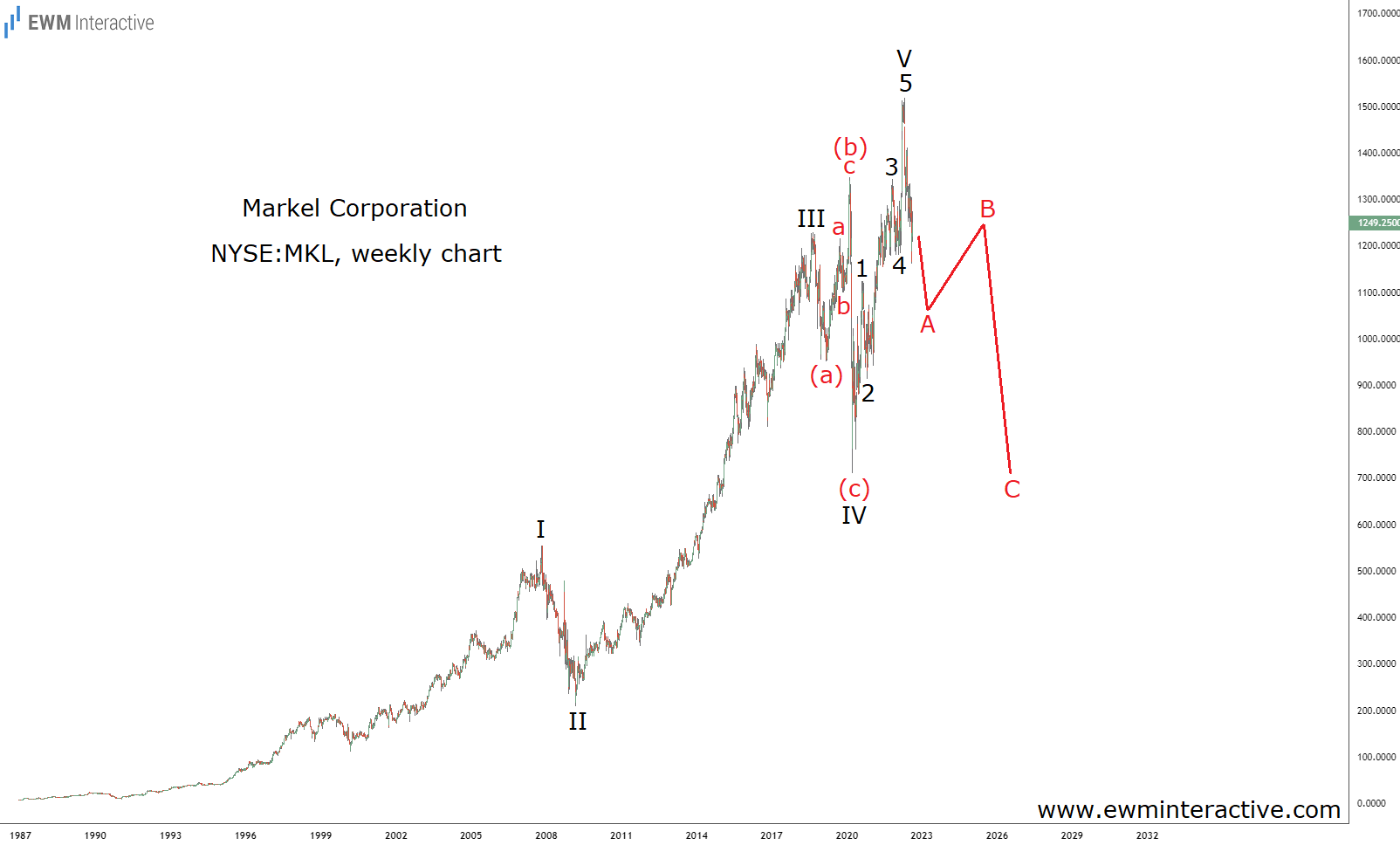Often dubbed a mini Berkshire Hathaway (NYSE:BRKa) due to its similar investment style, Markel (NYSE:MKL) Corporation is a specialty insurer operating in a variety of niche markets. The company was founded in 1930, but only went public 56 years later, in 1986. Thirty-six years after its debut, Markel has produced real fortunes for its early investors.
The stock closed at $1249 a share last week, up an astonishing 15 500% since its IPO price of $8. This translates into a CAGR of 15.1% a year. Markel is a great example of the fact that, given enough time, compounded interest really is the eighth wonder of the world.
Even the strongest bull market is interrupted by corrections from time to time. More recently, MKL has been going through a rough patch, as well. As of last week’s close, the stock is down 17.8% from its all-time record of $1519. When it comes to such a high-quality compounder, investors rarely wait long before buying the dip. Unfortunately, the Elliott Wave chart below suggests that this would be a mistake this time.

A quick look at Markel ‘s weekly chart reveals that the past 36 year have produced a textbook five-wave impulse. The pattern is labeled I-II-III-IV-V, whose wave IV is an expanding flat correction. The five sub-waves of wave V are also visible. According to the theory, a three-wave correction should now erase most or all of the fifth wave. This means a decline back to the pandemic lows between $800 and $700 can be expected.
From the current level of ~$1250, that would be a drop of between 35% and 45%. Once there, both Markel ‘s Elliott Wave cycle and valuation would be pointing north. Until then, however, we think it is best to remain on the sidelines.
